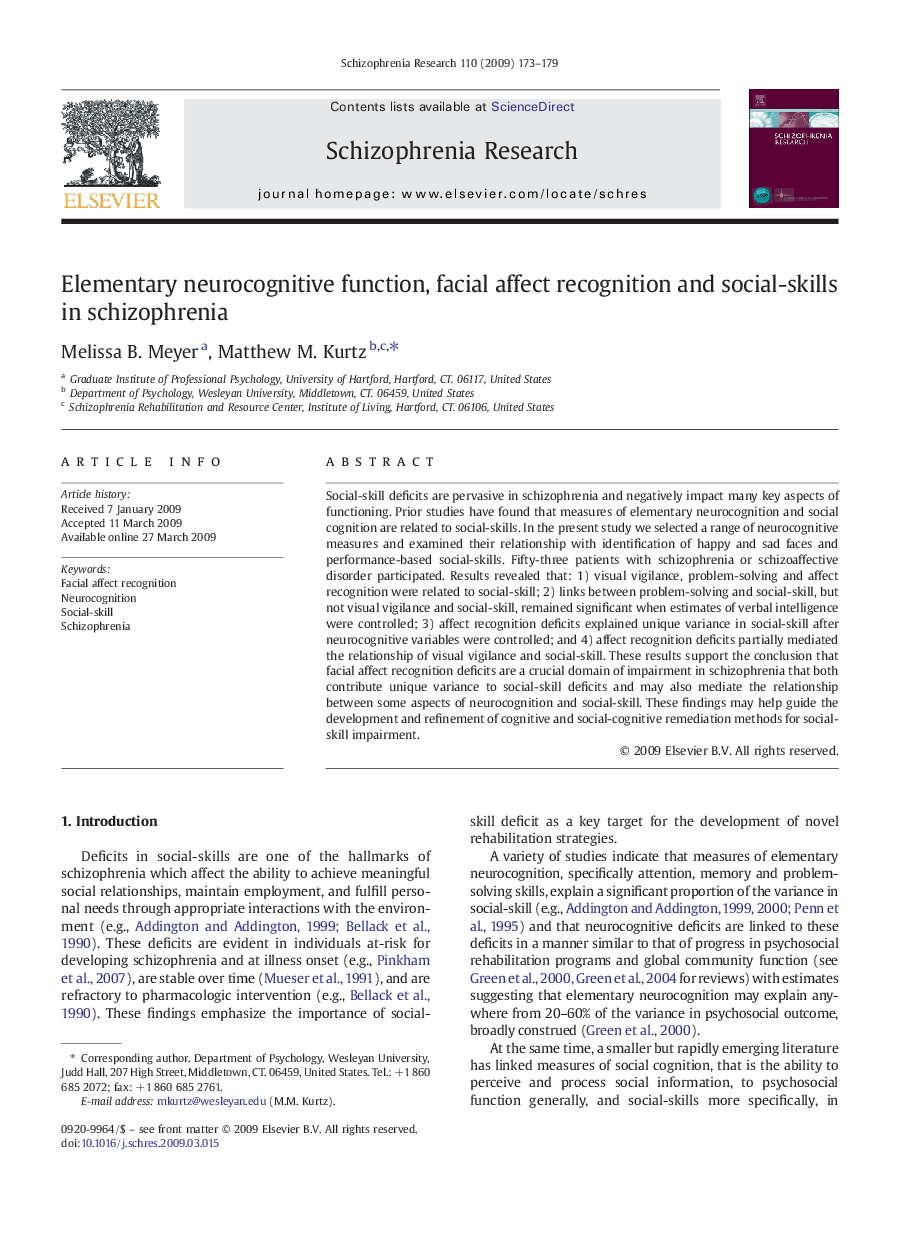| Article ID | Journal | Published Year | Pages | File Type |
|---|---|---|---|---|
| 339387 | Schizophrenia Research | 2009 | 7 Pages |
Social-skill deficits are pervasive in schizophrenia and negatively impact many key aspects of functioning. Prior studies have found that measures of elementary neurocognition and social cognition are related to social-skills. In the present study we selected a range of neurocognitive measures and examined their relationship with identification of happy and sad faces and performance-based social-skills. Fifty-three patients with schizophrenia or schizoaffective disorder participated. Results revealed that: 1) visual vigilance, problem-solving and affect recognition were related to social-skill; 2) links between problem-solving and social-skill, but not visual vigilance and social-skill, remained significant when estimates of verbal intelligence were controlled; 3) affect recognition deficits explained unique variance in social-skill after neurocognitive variables were controlled; and 4) affect recognition deficits partially mediated the relationship of visual vigilance and social-skill. These results support the conclusion that facial affect recognition deficits are a crucial domain of impairment in schizophrenia that both contribute unique variance to social-skill deficits and may also mediate the relationship between some aspects of neurocognition and social-skill. These findings may help guide the development and refinement of cognitive and social-cognitive remediation methods for social-skill impairment.
